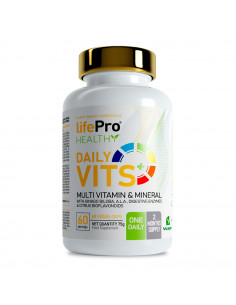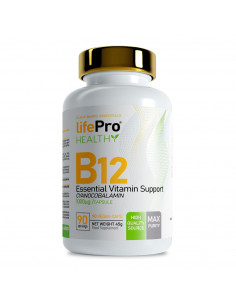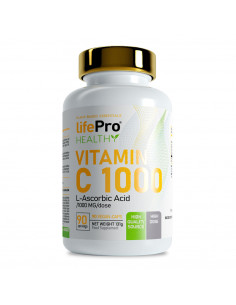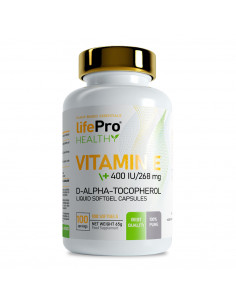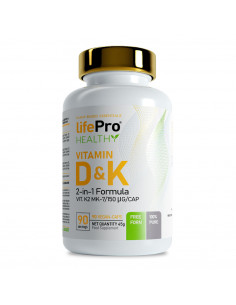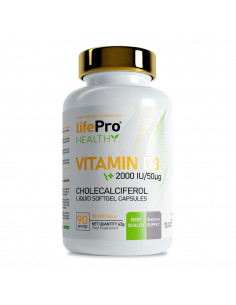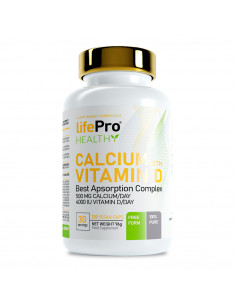Buy Vitamins Online
Vitamins are micronutrients, divided into fat-soluble and water-soluble, necessary for the proper functioning of the body.
What are vitamins?
Vitamins are those compounds that our organism needs every day, in specific quantities, in order to maintain our state of health and to be able to carry out the multitude of tasks and functions in which they are involved.
They are essential and heterogeneous substances that cannot be synthesised or produced, so they have to be ingested through the diet, and if this is not sufficient, through supplementation. They are part of the micronutrient group.
To understand the types of vitamins, we differentiate them into two distinct groups. Each has its own particular characteristics.
What are fat-soluble vitamins?
They are the group of vitamins that have the ability to dissolve in fat, so it is necessary to consume them together with fat so that they can be absorbed. They will then pass into the body's tissues, where they will be stored until the body needs them to carry out the functions in which they are necessary.
This group includes vitamins A, D, E and K.
What are water-soluble vitamins?
As their name suggests, they dissolve in water and are eliminated through urine. It is essential to consume them regularly. This group includes the B complex vitamins (B1, B2, B3, B5, B6, B8, B12 and vitamin C).
What are the vitamins used for?
- Vitamin A: it is necessary to maintain the state of sight in optimal conditions, improves the immune system and has antioxidant properties due to its active compound called carotenoids.
- Vitamin D: its deficiency is quite common due to low exposure to sunlight. It is necessary for energy production, regulating calcium absorption and improving the state of the immune system.
- Vitamin E : improves skin condition, wound healing and has a high antioxidant power that favours the improvement of the immune system.
- Vitamin K : regulates calcium levels, preventing possible deposits in the arteries and is essential for blood clotting.
- Vitamin C: considered one of the most important antioxidants in the body, it fights free radicals and improves the immune system.
- B vitamins: B1, B2, B3, B5, B7, B9, and B12.
This group of vitamins, among many other functions, is responsible for carrying out the metabolism of the 3 macronutrients (proteins, fats and carbohydrates), are involved in energy production, insulin regulation, help to improve the immune system, the production of red blood cells, and are involved in the growth and development of tissues, is involved in the functioning of the nervous system among many others.
Which vitamins to take?
Each person has different needs that may vary according to different factors, such as the type of diet we follow, exposure to the sun, the variety of foods consumed, etc. It is advisable to carry out the corresponding analysis to determine possible deficiencies and choose the most appropriate supplement.
The most common vitamin deficiencies include vitamin B12 in vegans, due to a lack of animal products, and vitamin D in people living in geographical areas where sun exposure is limited.
Category rating
(444)

